Reviewing the 2018 Modern Era Hall of Fame ballot: Part 2
This is part two of a two-part series reviewing this year's Modern Era Hall of Fame ballot. Read part one here.
The Baseball Hall of Fame will announce the first members of its class of 2018 when the results of the Modern Era Ballot are revealed Sunday night. A 16-person committee featuring Hall of Famers, executives, writers, and historians will vote; just like in the BBWAA elections, Modern Era candidates need at least 75 percent of the vote to gain induction.
Our look at the first half of this 10-person ballot, which analyzed the cases of Steve Garvey, Tommy John, Don Mattingly, MLBPA founder Marvin Miller, and Jack Morris, can be found here. Today, we're reviewing the cases of the final five candidates, along with revealing our election-day predictions - both who we believe should be chosen from this ballot, and our realistic expectations.
Note: These reviews make use of JAWS (Jaffe WAR Score), developed by Hall of Fame historian and author Jay Jaffe, and Bill James' Hall of Fame Monitor to help better evaluate each player's candidacy. Click here for an explanation of JAWS; click here for an explanation of the Hall of Fame Monitor.
Dale Murphy
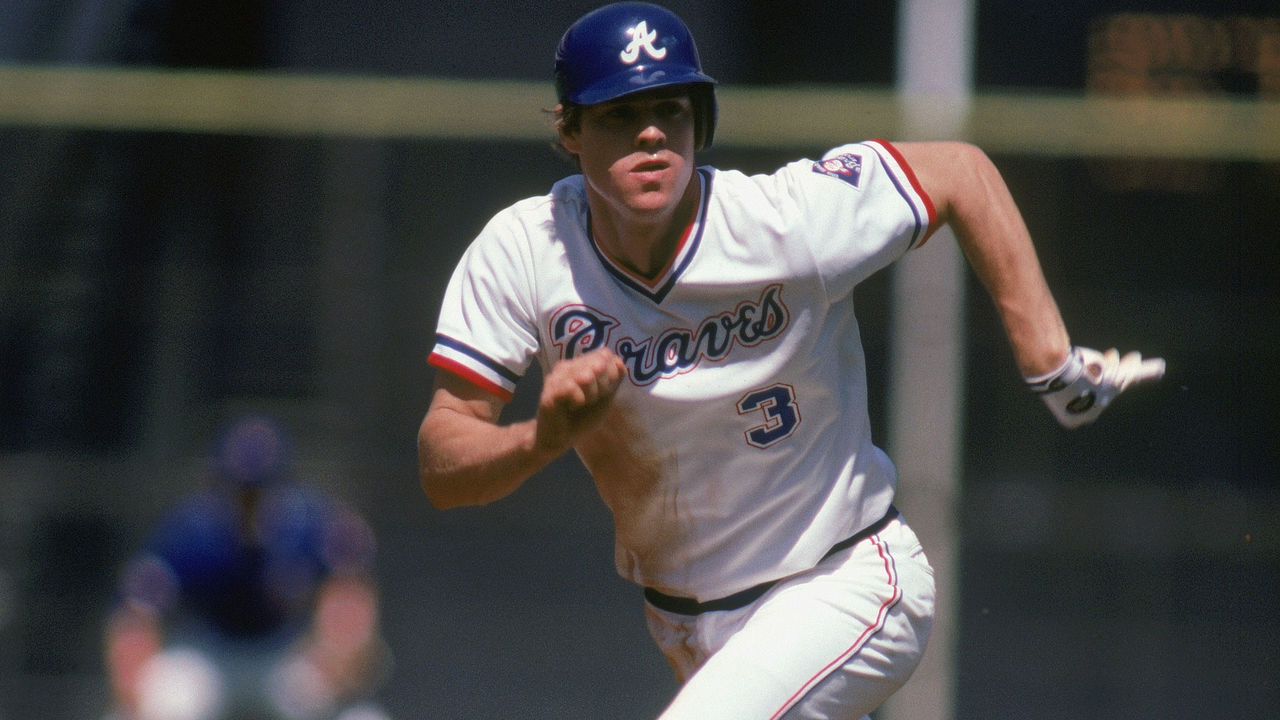
Position: CF
Teams: Braves, Phillies, Rockies
Years: 1977-94
JAWS: 43.6 (25th)
HOF Monitor: 116
BBWAA HOF ballot high: 23.2 percent in 2000 (Year 2 of 15)
| G | BA | OPS | H | HR | RBI | WAR |
|---|---|---|---|---|---|---|
| 2180 | .265 | .815 | 2111 | 398 | 1266 | 46.2 (227th) |
He's in: During his peak, Murphy might have been the best player in baseball. After being moved from catcher to the outfield, he reeled off an incredible run with the Braves, winning back-to-back NL MVP awards in 1982 and '83 plus a pair of home-run crowns from 1984-85, and a 30-30 campaign in '83. Murphy did not miss a game from 1982-85. Besides the MVPs, Murphy won five straight Gold Gloves, four straight Silver Sluggers, and made seven All-Star teams, including six consecutively from 1982-87. He also scored 100-plus runs in four different seasons, and crushed a career-best 44 dingers in 1987. Over his first 12 seasons Murphy was worth 41.4 bWAR.
He's out: Murphy's decline was sudden, swift, and spectacular. A 150 wRC+ in 1987, his age-31 season, plummeted to 102 in '88, and 84 in '89. From age 32 on, Murphy never hit above .252 or posted an OPS above .735, failed to top the 24-homer mark, and was worth just 4.8 bWAR to his teams. A 1990 trade to the Phillies couldn't revive him, and by the time he retired in 1993, he was simply roster ballast for the expansion Rockies. The drop-off was so astonishing that it impacts the perception of his entire career, and probably cost him a lot of votes during his run on the writers' ballots.
Murphy's peak on its own was Hall-worthy, but those end years can't be ignored. Had he aged gracefully after turning 32, Murphy might already be in Cooperstown. Instead he ended up well behind the standard for center fielders, and has a statistically weaker case for induction than defense-first stars such as Andruw Jones and Jim Edmonds.
Dave Parker
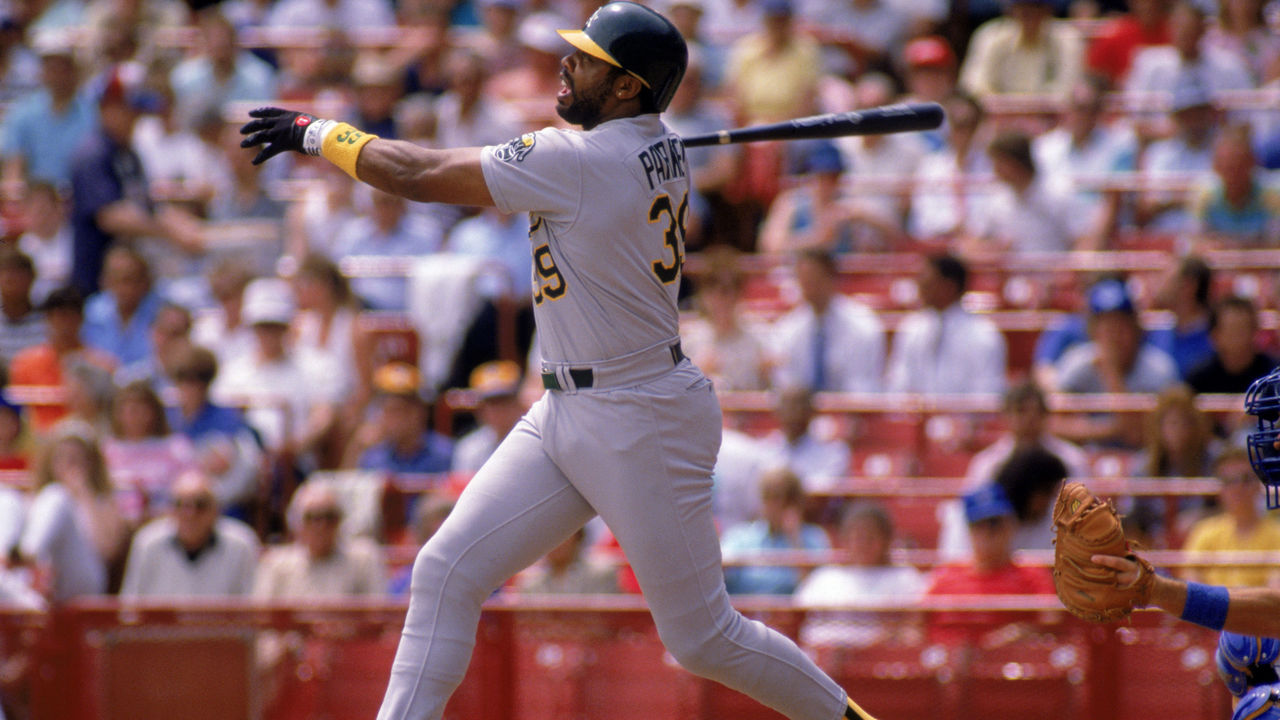
Position: RF
Teams: Pirates, Reds, Athletics, Brewers, Angels, Blue Jays
Years: 1973-91
JAWS: 38.6 (37th)
HOF Monitor: 124
BBWAA HOF ballot high: 24.5 percent in 1998 (Year 2 of 15)
| G | BA | OPS | H | HR | RBI | WAR |
|---|---|---|---|---|---|---|
| 2466 | .290 | .810 | 2712 | 339 | 1493 | 39.9 (T-325th) |
He's in: "The Cobra" was one of the superstars of the 1970s. A fearsome hitter with a powerful arm, Parker won the 1978 NL MVP, finished top three in voting twice more, and won three Gold Gloves and three Silver Sluggers. Parker spent a decade in Pittsburgh, where he was one of the centerpieces of the 1979 "We Are Family" Pirates, hitting .345 in their World Series win over Baltimore. In the latter half of his career he won another ring in Oakland and took home a pair of Designated Hitter of the Year awards.
He's out: Parker's career was interrupted by injuries and drug use, and he infamously testified in the Pittsburgh drug trials of 1985. He was suspended for his cocaine use by then-commissioner Peter Ueberroth in 1986. Those off-field problems may have hurt his chances with the writers, and it remains to be seen if that will affect him on this ballot. He also ranks low among right fielders by several metrics, despite some impressive traditional stats.
Parker represents one of the most interesting Hall cases of his time in the form of a wonderful and memorable career tarnished by drug use. Without cocaine his numbers might be higher - but if the writers held that against him, as previous voting totals suggest they did, what will the Modern Era Committee think?
Ted Simmons
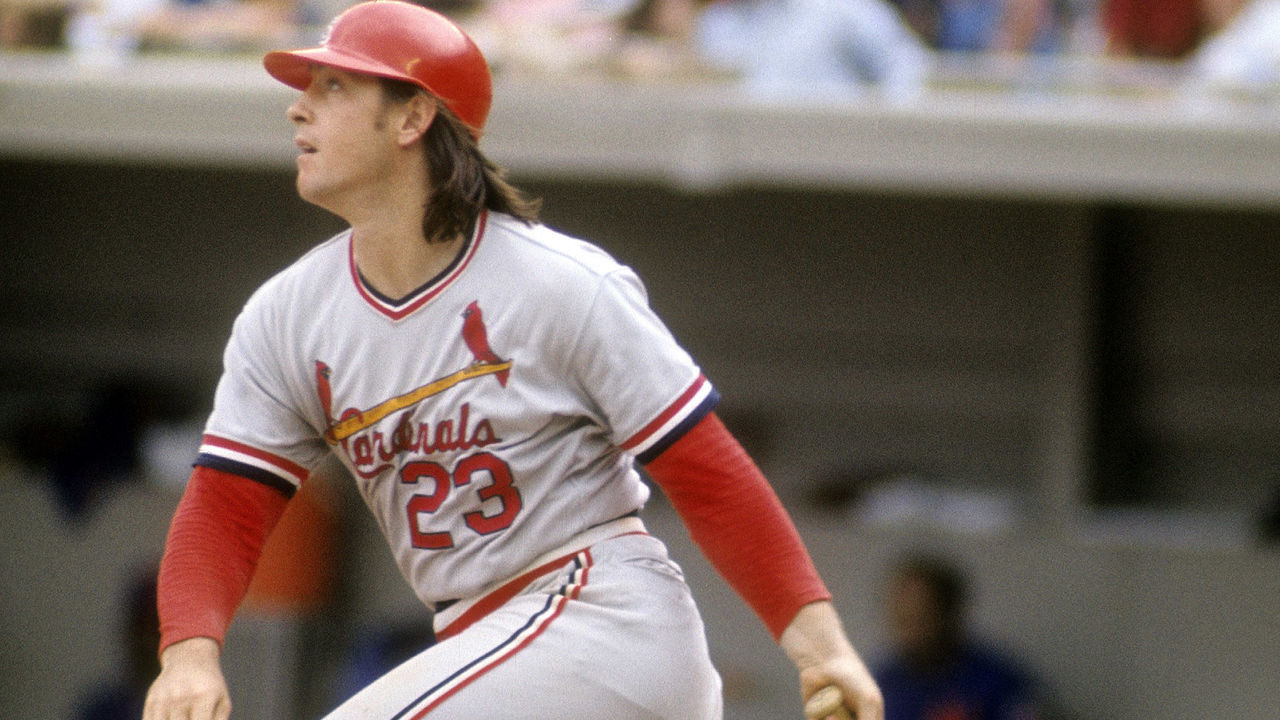
Position: C
Teams: Cardinals, Brewers, Braves
Years: 1968-88
JAWS: 42.4 (10th)
HOF Monitor: 124
BBWAA HOF ballot high: 3.7 percent in 1994; dropped from BBWAA ballot after 1 year
| G | BA | OPS | H | HR | RBI | WAR |
|---|---|---|---|---|---|---|
| 2456 | .285 | .785 | 2472 | 248 | 1389 | 50.1 (192nd) |
He's in: One of the best offensive catchers in history, Simmons was mostly overshadowed by the likes of Johnny Bench, Gary Carter, and Carlton Fisk during his brilliant career in St. Louis. The eight-time All-Star retired owning since-broken records for hits and doubles by a catcher, while his 248 homers still rank 10th all time at the position, and his 1,389 RBIs trail only Yogi Berra. After a decade of excellence with the Cardinals, Simmons was dealt to the Brewers in 1981; a year later, his 23-homer performance helped the Brewers to their lone World Series appearance, a seven-game loss to his old team.
He's out: Defense was never Simmons' strong point. He threw out just 34 percent of would-be base-stealers for his career and led the league in passed balls three times - his 182 career passed balls allowed rank second in the modern era. He provided the majority of his value on offense at a position that demands defensive excellence. By the end of his career he was a backup in Atlanta, providing minimal value and pop off the bench.
By the JAWS metric, Simmons was the 10th-best catcher in history. Aside from the still-active Joe Mauer, every catcher ahead of Simmons on that list is in Cooperstown. In career WAR he ranks 12th all time, again trailing a list of Hall of Famers save for Mauer.
Luis Tiant
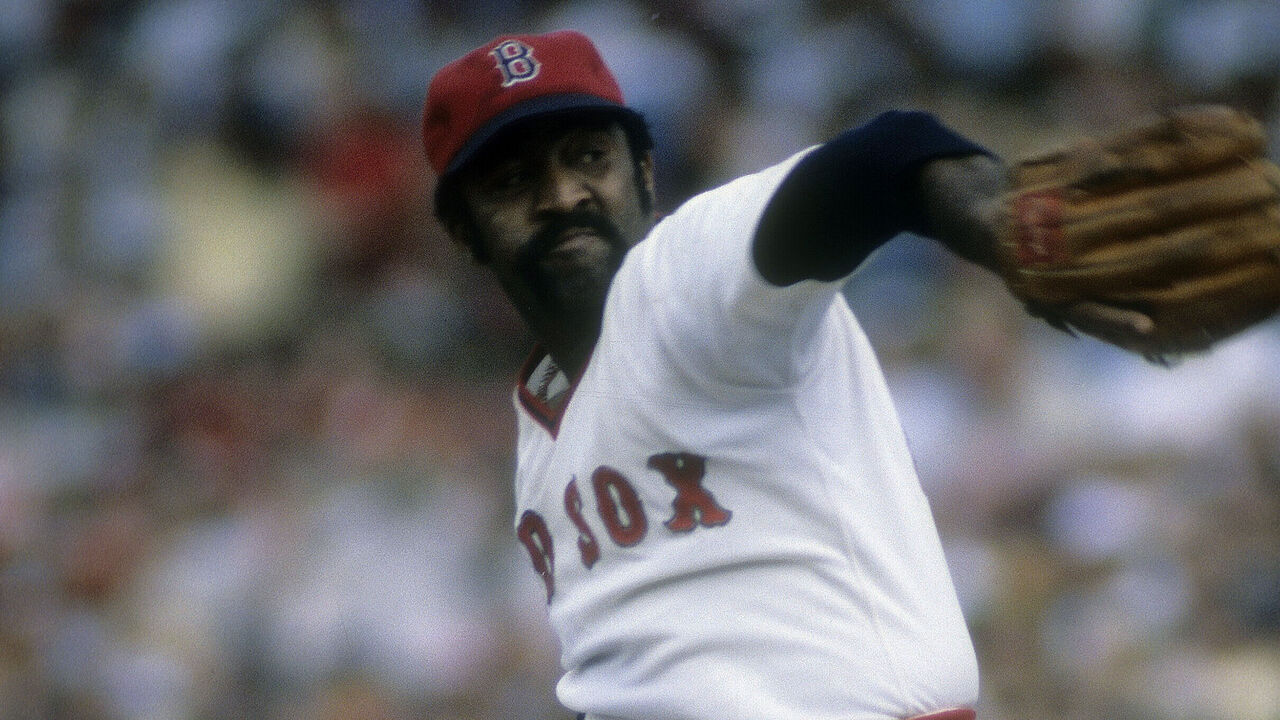
Position: RHP
Teams: Indians, Twins, Red Sox, Yankees, Pirates, Angels
Years: 1964-82
JAWS: 55.7 (51st)
HOF Monitor: 97
BBWAA HOF ballot high: 30.9 percent in 1988 (Year 1 of 15)
| W-L | ERA | K | BB | IP | WHIP | WAR |
|---|---|---|---|---|---|---|
| 229-172 | 3.30 | 2416 | 1104 | 3486.1 | 1.199 | 66.1 (40th) |
He's in: In all likelihood, Tiant is the greatest Cuban pitcher in MLB history, and he's one of the game's most colorful characters, always seen with a cigar below his trademark Fu Manchu 'stache. Tiant won 20 games four times and twice led his league in ERA (a career-best 1.60 mark in 1968 with Cleveland, and 1.91 in his 1972 comeback year). He may have had his best season in the pitching-rich '68 campaign, but Tiant remains most famous for his work in Boston, where he became a hero to New England over eight largely dominant seasons and starred in the 1975 World Series. He was a three-time All-Star and posted two top-five finishes in Cy Young voting.
He's out: Tiant's career featured extraordinary highs and lows. For all of his brilliant seasons, Tiant produced quite a few mediocre ones, including the woeful follow-up to his '68 campaign, in which he lost 20 games while almost tripling his ERA; it took him another two injury-plagued seasons to find himself again in Boston. Tiant was an infrequent All-Star, never got Cy Young love, and his win total ranks low alongside the Hall of Fame starters of his era.
Tiant's place in the game's history is important because he's a Cuban baseball icon, and his Hall of Fame case may rest on that status. On this ballot, that doesn't appear to be enough to push him in.
Alan Trammell
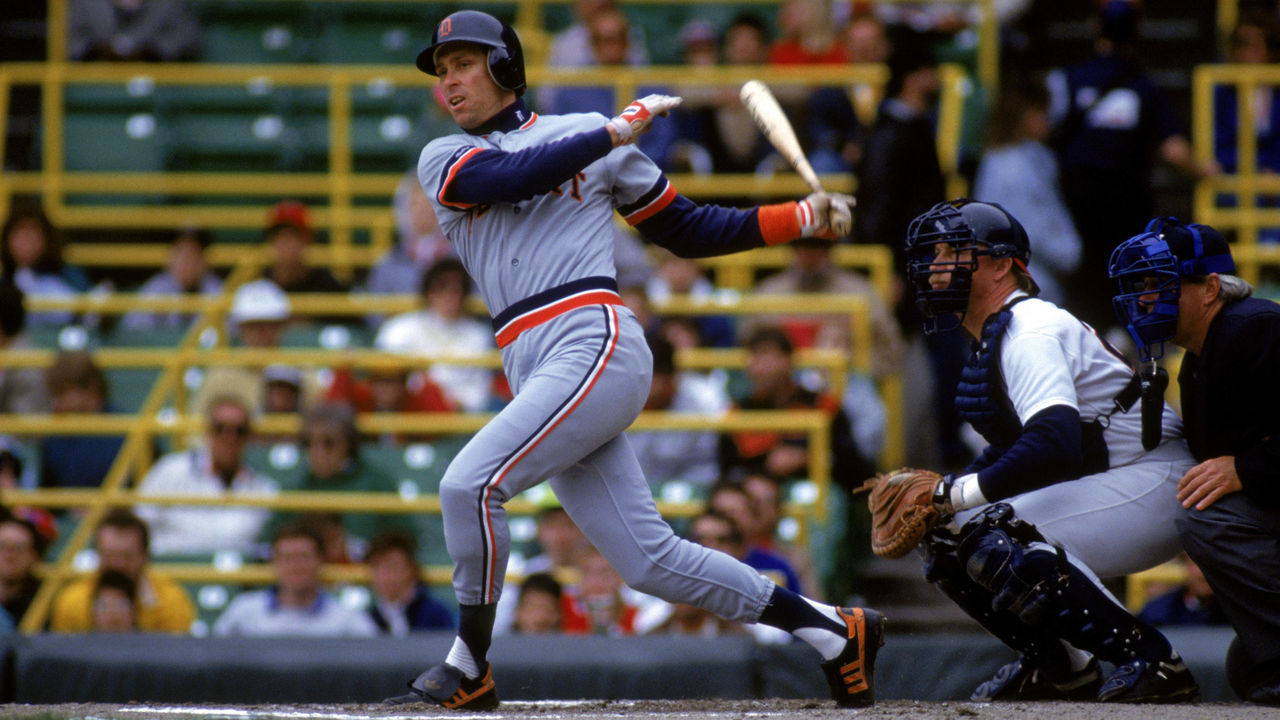
Position: SS
Teams: Tigers
Years: 1977-96
JAWS: 57.5 (11th)
HOF Monitor: 118
BBWAA HOF ballot high: 40.9 percent in 2016 (Year 15 of 15)
| G | BA | OPS | H | HR | RBI | WAR |
|---|---|---|---|---|---|---|
| 2293 | .285 | .767 | 2365 | 185 | 1003 | 70.4 (T-62nd) |
He's in: Trammell was one of the finest shortstops in his era - or any era - and he did it in the shadow of many fellow greats, including Cal Ripken Jr., Ozzie Smith, and Robin Yount. For 19 of his 20 years, Trammell and Lou Whitaker (who's worthy of induction himself) formed an iconic double-play tandem in Detroit. Trammell was a six-time All-Star, three-time Silver Slugger winner, and owns four Gold Gloves. He won the 1984 World Series MVP on a stacked 105-win Tigers team, and finished second in AL MVP voting in 1987 to Toronto's George Bell. To this day, many believe Trammell was robbed of that award. Perhaps writers would view his career differently with an MVP on his resume.
When he retired, Trammell ranked eighth in career homers by a shortstop, and 11th in hits. Of the 10 shortstops with a higher JAWS score than Trammell, only 19th-century star Bill Dahlen and Alex Rodriguez aren't yet in the Hall of Fame. Trammell also outranks Derek Jeter in JAWS and seven-year peak WAR, though Jeter compiled more career WAR.
He's out: Injuries took their toll in the latter half of Trammell's career, pushing him into part-time duty over his final three seasons. Those lost years prevented him from padding his counting numbers. He never led the league in any category, including WAR, and lacks a major award beyond the Silver Sluggers and Gold Gloves.
The verdict
The Veterans/Era Committees, in whatever form they've taken, haven't elected a living player since Bill Mazeroski in 2001 - something that will, and should, change this year. While we believe four candidates from this ballot deserve to be elected, realistically, we expect only two men to get the call this week. Morris' likely election will stir up a ton of controversy, but we expect the Modern Era Committee to soften that blow by finally making Miller a Hall of Famer.
Our ballot: Marvin Miller, Dave Parker, Alan Trammell, Ted Simmons
Our expected result: Marvin Miller and Jack Morris
(Wins Above Replacement, JAWS, HoF Monitor courtesy: Baseball-Reference)
(Photos courtesy: Getty Images)